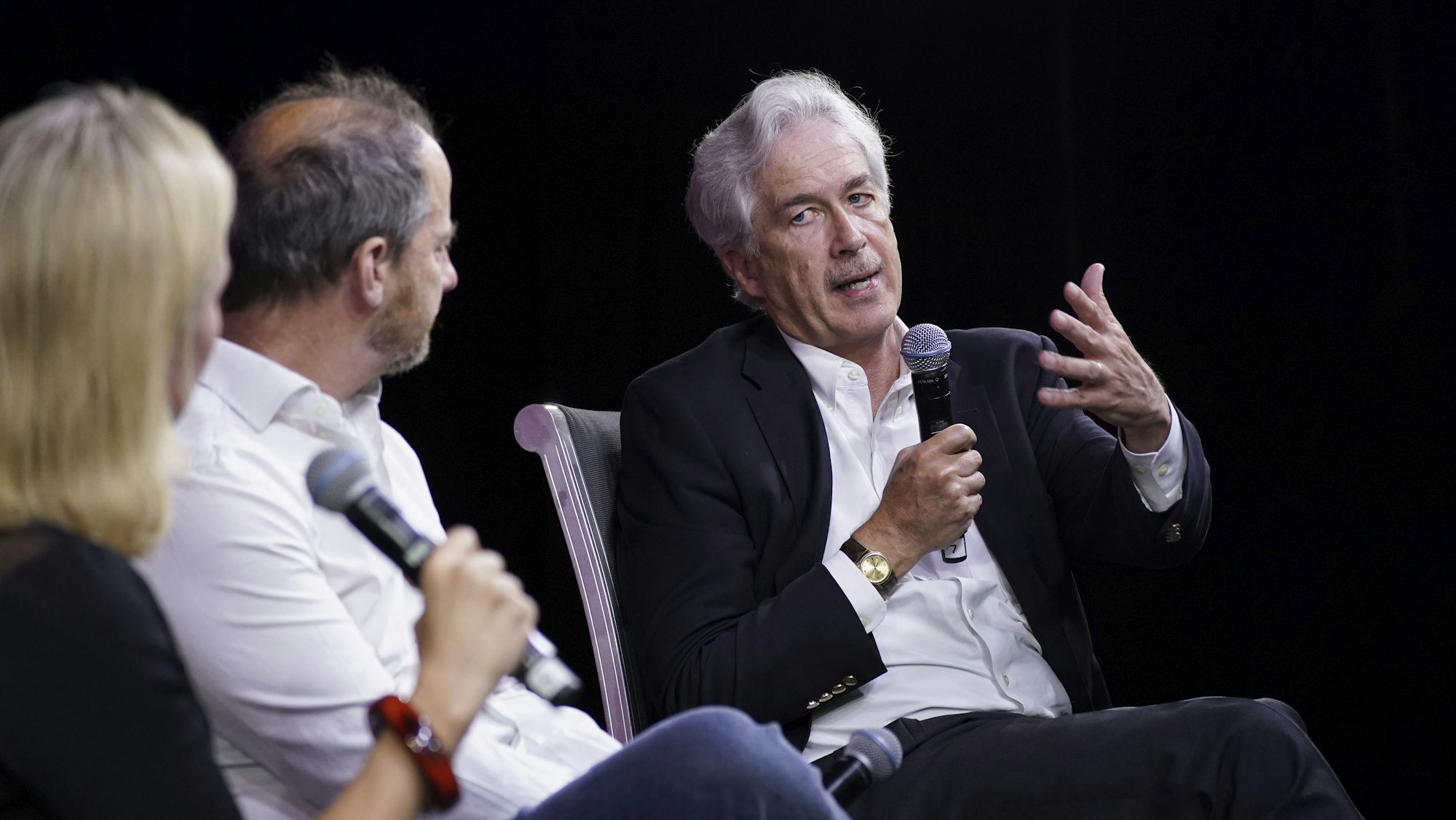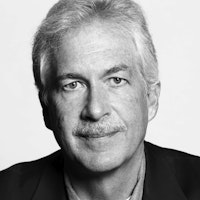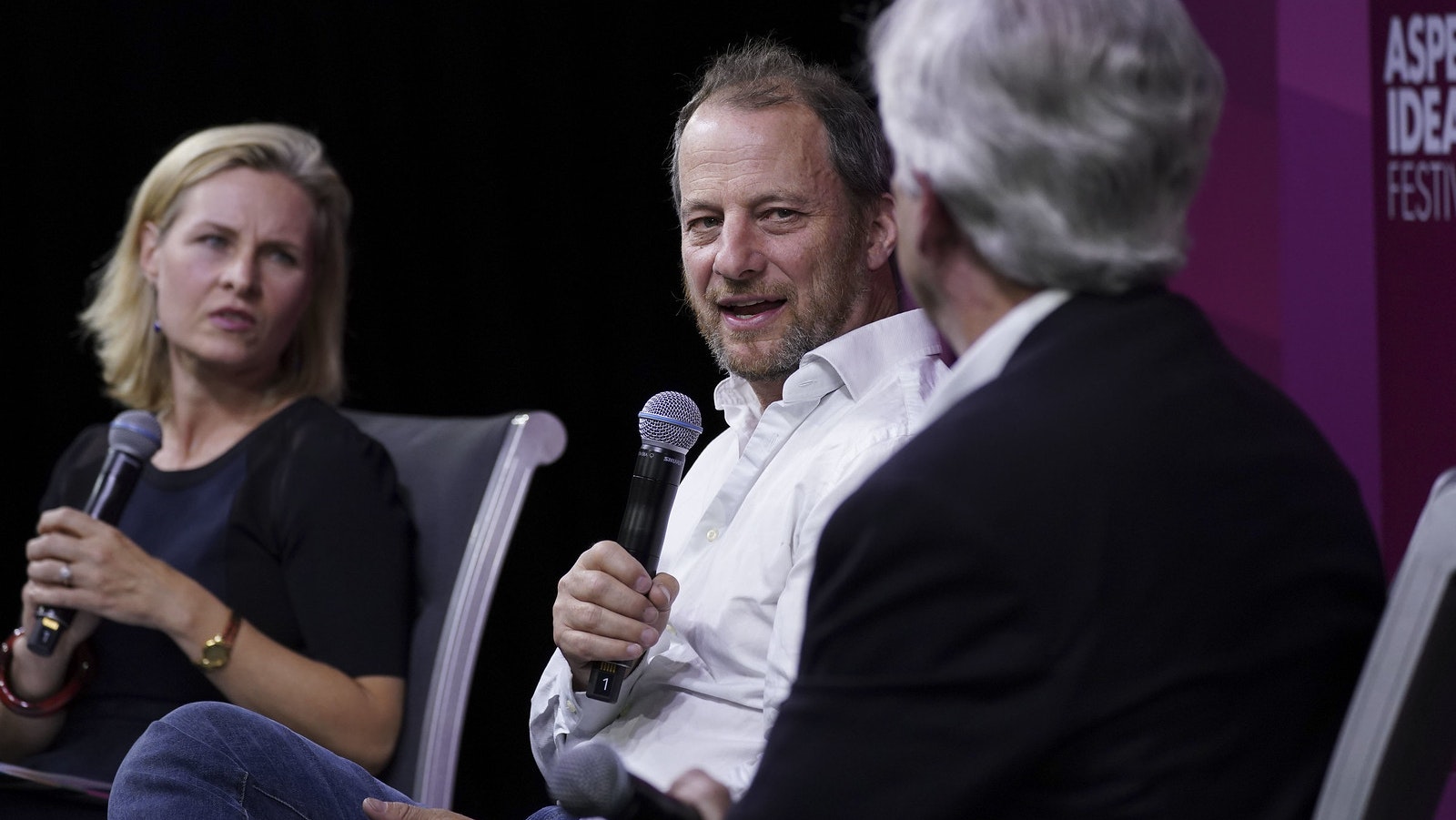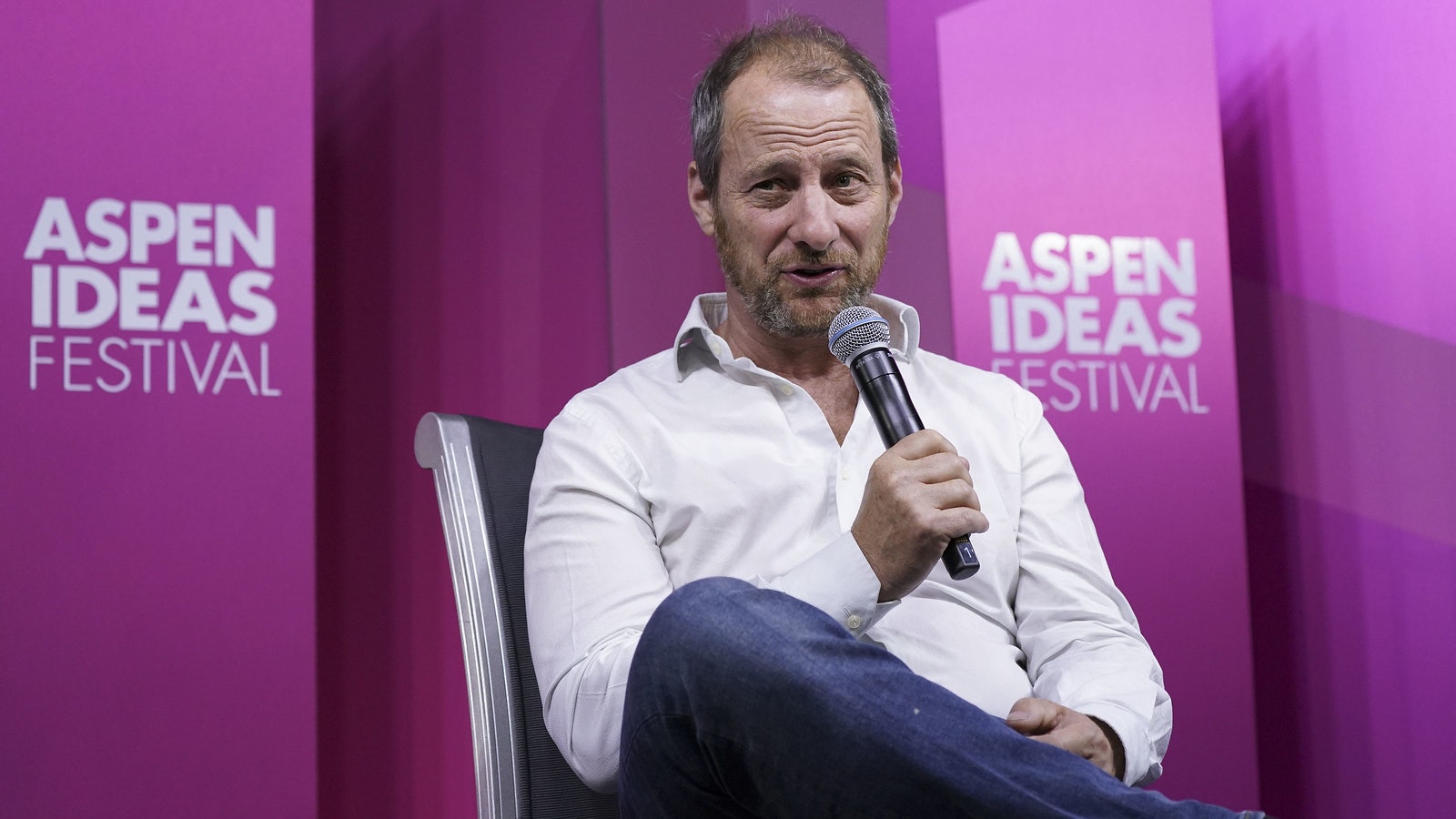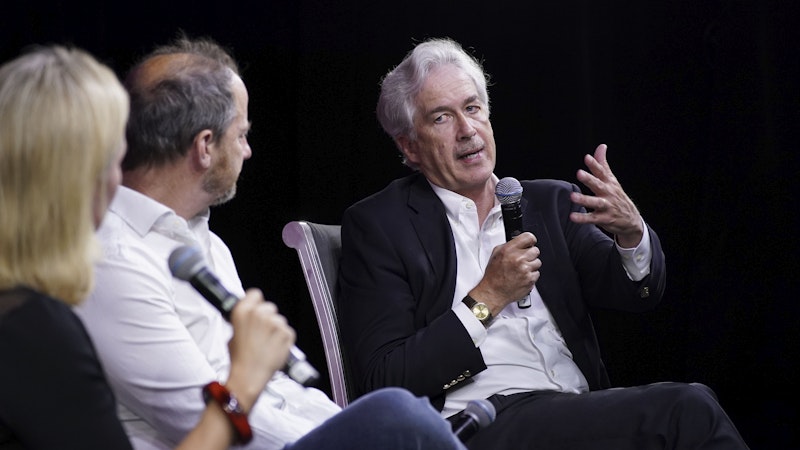
Is Diplomacy Dead?
Setup
The hard work of diplomacy, often mostly invisible, is arguably more important now than ever. In a shifting geopolitical landscape characterized by the emergence of Russia and China as significant rivals to the United States, new dangers threaten the American idea and an American-led world order. And yet, our diplomatic muscles have atrophied. Ambassador William Burns, president of the Carnegie Endowment for International Peace, served five presidents and ten secretaries of state in postings all over the word. The Atlantic’s George Packer, NPR’s Mary Louise Kelly, and Burns converse about the art of diplomacy, lessons from our shared past, and musings on diplomacy’s destiny in the emergent world order.
What makes a good diplomat?
“Perfect is rarely on the menu in diplomacy,” says William Burns, president of the Carnegie Endowment for International Peace and former career ambassador for the US Foreign Service. What you can do, he explains, is manage problems using the best of the available alternatives.
Big IdeaDiplomacy is always dissatisfying. It’s by definition about compromise, about starting with high demands and maximalist objectives, and then figuring out where you’re willing to settle, because you will have to settle unless you’re ready to go to warGeorge Packer
What good diplomats do, says George Packer, author of Our Man: Richard Holbrooke and the End of the American Century, is “get into the skin of the person on the other side of the table” in order to truly understand them. This allows the US to draw in alliances and mobilize coalitions of countries, though Burns explains he’s worried that “we’re corroding that tool of diplomacy and squandering that asset.” What’s more, adds Mary Louise Kelly of NPR, sending diplomats to solve our most pressing global issues “only has a shred of a chance of success if that person is seen to be carrying the word and carrying the weight of the president.”
Diplomacy in the Trump era
America is no longer an ascendant power, says George Packer. “We are now among many competitors with a declining relative power, with a jaded public, with an exhausted two decades of war that involved overreach and expense of resources and lives.” Now is exactly the time, he emphasizes, for the US to figure out how to regain influence in the world. Packer and William Burns discuss the impact the Trump administration is having on America’s foreign presence:
Big IdeaI still think it’s possible to renew American diplomacy, but we’re digging a pretty deep hole for ourselves today. My concern is we’ll eventually stop digging, but when we climb back to the top of the hole we’re gonna look out on a landscape that has hardened against our interests and, in some ways, against our values.William Burns
The biggest change to American diplomacy since 2016? In the past, Burns explains, a sense of enlightened self-interest guided our foreign policy — the sense that our self-interest as a country was best served by broadening the number of countries who shared those basic interests. “What’s happening today is turning that on its head,” he says. It’s now “a lot more about the self part than the enlightened part.”
Leading through example
“You get a lot farther through the power of our example, than you do through the power of our preaching,” William Burns says. “And right now our example is pretty lousy.” So what consequences do we suffer when the world no longer looks to follow America’s example? Burns and George Packer exchange their worries:
-
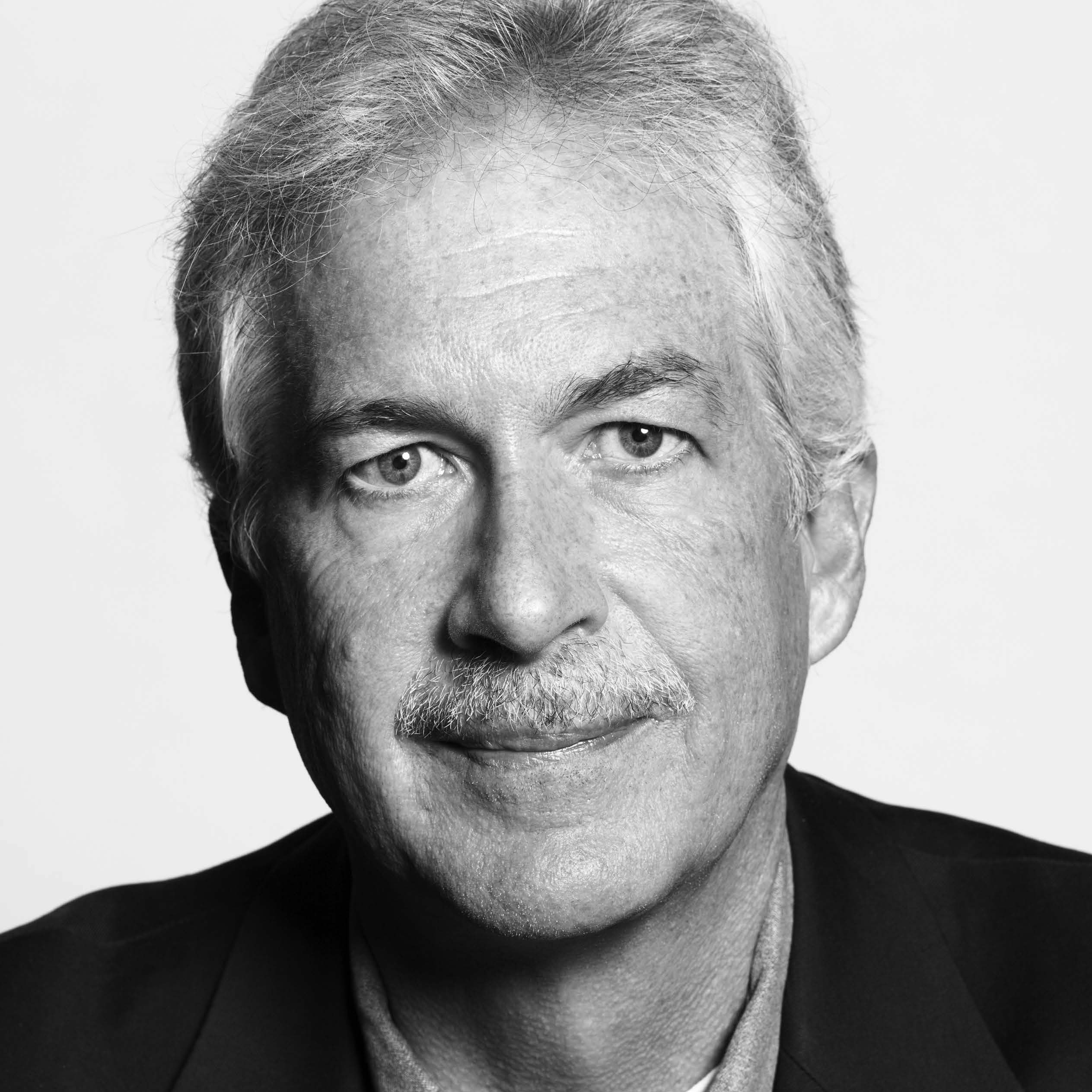
William Burns: What has appealed to lots of people overseas about our society — at our best, and we’re not always at our best — is the sense of possibility and mobility. And when we have such a hard time dealing with immigration challenges and create such a poisonous atmosphere around those kind of issues, when we indulge autocrats overseas...today all too often we do kinda check our values at the door. Those are the kind of things that are not only morally questionable, but do us a lot of practical damage, too, because the power of our example does matter.
-

George Packer: On a trip to Bosnia, a young journalist said to me, “When your president calls you the enemy of the people, how do you think that affects us when we’re trying to get our own heavy-handed authorities to allow us to function as journalists? We cannot point to the United States and say, this is the model you should follow.”
On playing the long and short game
Much of foreign policy comes down to human character, George Packer points out, and “Trump clearly has a soft spot for authoritarian-types.” The short-term worry, Packer and William Burns agree, is that the current administration is corroding US assets and alliances around the world.
Big IdeaIt takes a special kind of diplomacy to piss off the Canadians.William Burns
What about the long-game issues diplomats should be thinking about? “Climate change is the single biggest existential threat out there for human society, so I think it was a huge mistake to bail out of the Paris Climate treaty” says Burns. Another critical issue, he adds, is the question of how to manage the oftentimes adversarial relationships with power rivals like China and Russia — and “do it in a way that identifies some areas in which you could cooperate.”
Foreign policy experience is critical for 2020 hopefuls
Foreign policy hasn’t been at the forefront of the buzz around 2020 democratic candidates, George Packer says, but it shouldn’t be ignored considering our current position in the geopolitical world. Packer and William Burns offer their insight into foreign policy experience among past presidents and current hopefuls:
Learn More
Additional Information
Resources
Our Man: Richard Holbrooke and the End of the American Century
Is America Undergoing a Political Realignment?
The Back Channel: A Memoir of American Diplomacy and the Case for Its Renewal
We Led Successful Negotiations with Iran. Trump's Approach Isn't Working.
Explore More
World


While the workforce continues to evolve in response to economic shifts and technological advancements, one thing is certain — the traditional blueprints for education and the...


Living as a trans person in America comes with its share of challenges, which are sometimes even life-threatening. But some say it can also open up access to incredible freedo...

Entrepreneurs view the world differently. Where others see challenges, they see opportunities. They’re a group of self-starters and strivers with the courage to take big risks...

Global conflicts and health crises have put into stark relief deeply-ingrained gender roles in society. Yet the past years have also seen record-high numbers of women running...


Creativity is as intrinsic to our species as any of our basic instincts, says Debbie Millman, designer and curator. But for millions of people in the United States, the abilit...

The people in our lives shape who we are. But great relationships don’t just happen — they take care, intention, and ongoing effort. How do you know when to let go, adjust exp...


Advances in medicine and healthy living mean that more and more people will live to be 100. But just because their bodies can last doesn’t mean their bank accounts will keep u...


In the early days of cable television, there wasn’t a single network aimed at Black audiences. Sheila Johnson and her husband at the time saw an opening, and put all their hop...

Of course, Black history shouldn’t just be a month-long nod on our yearly calendar — it is inextricable from American history and fundamental to the very soul of our nation an...


Owning a professional sports team is not for the faint of heart. Results are volatile and wins and losses come with the strong emotions of a city’s fan base. But it’s a sound...


Looking around and experiencing the suffering and injustice in the world can make it difficult to believe that happiness exists. But the Judeo-Christian tradition teaches that...


This episode is from the 2022 Aspen Ideas Festival, but we’re bringing it back because it’s still as relevant as ever. Though it can sometimes feel like conflict and discord i...


Sir Ken Robinson believed that as a society, we tragically underestimate and underutilize human ability. We create linear systems for our minds modeled on industry and manufac...

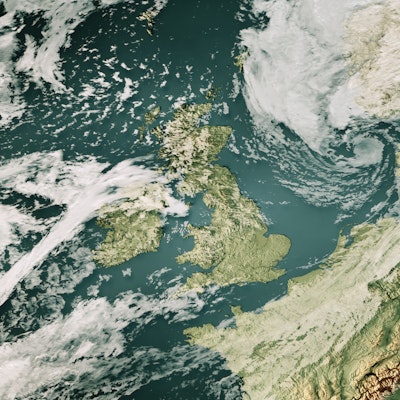
Scholars are still uncovering information about Britain’s involvement in the transatlantic slave trade and its era of slavery, piecing together how the wealth generated from t...


Young people in America are struggling. The causes are varied and may not be entirely clear, but the results are unfortunately unmistakable. Many of our youth feel lonely, iso...


Many more Americans are struggling to survive and make ends meet than is typically portrayed in the media and public policy debates. And when poverty is depicted, harmful and...

New York Times columnist and bestselling author David Brooks is known for bringing his thoughtful reflections on politics and culture, but at this year’s Aspen Ideas Festival,...

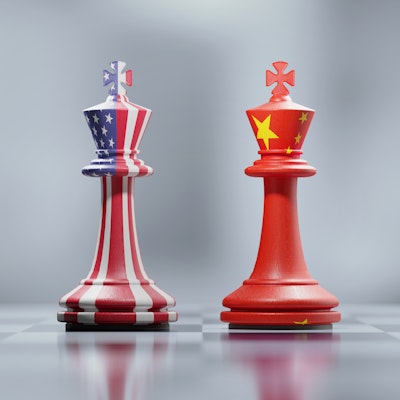
Relations between the United States and China have become increasingly tense over the past few years. Trade wars have escalated, and U.S. national security experts are bracing...

Jump in by watching our 15 most popular talks of all time. From black holes to jazz and civil rights to psychology hacks, we've collected the talks that remain audience favori...


America’s “second founding” came on the heels of the Civil War, when the architects of the 13th, 14th and 15th amendments thought long and hard about how to enshrine civil rig...


